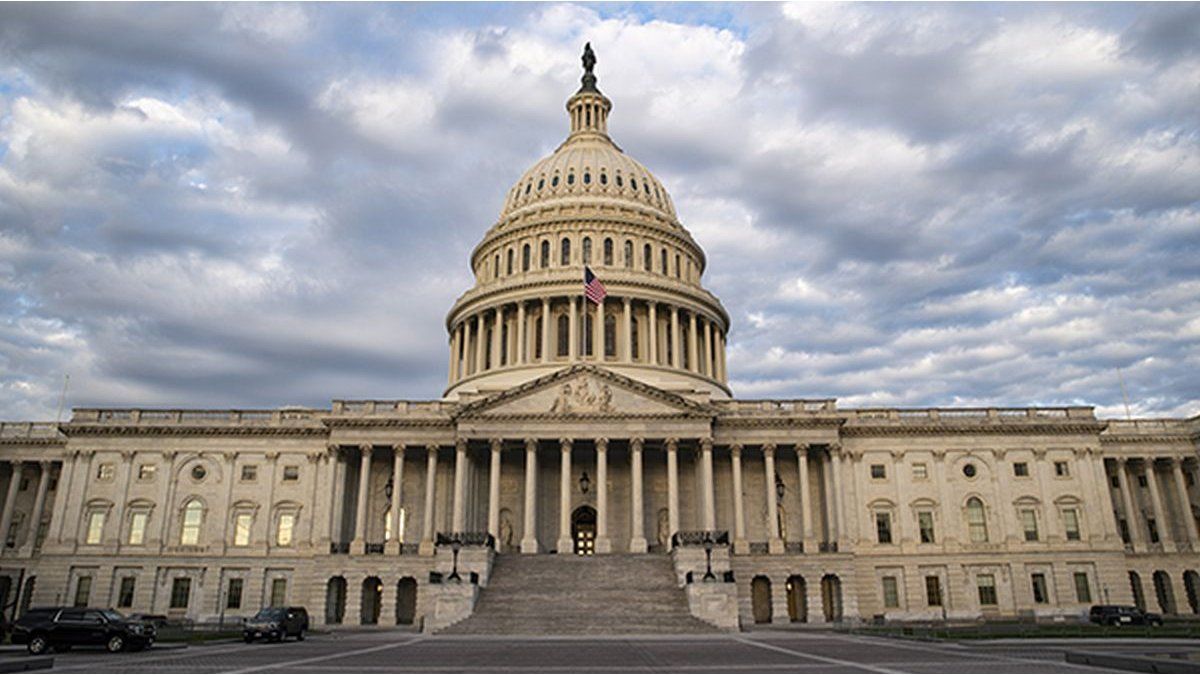The conditions for lifting restrictions for access to the dollar they are getting closer, according to the prominent economist Ricardo Arriazu, one of the main references for the markets, and the former Secretary of Finance Miguel Kiguel. Both professionals held a talk for investors.
During the exhibition organized by the MegaQm stock company virtuallyboth professionals pointed out that the conditions are beginning to be met to unify the exchange rate and free the dollar, although they pointed out that it is necessary for the Government to clarify what the exchange rate regime that it intends to implement will be: one with a fixed value or floating exchange rate.
In that sense, Arriazu pointed out that ““The situation so far is much better than expected.” since “having purchased US$9.5 billion of reserves in two and a half months is notable.” “When they say that Argentina has a structural problem of lack of dollars, it is false. What Argentina has is that it spends more,” she emphasized.
In that sense, he said that “Last year the current account deficit was US$20 billion because the fall of the harvest cost us US$20,000 million dollars and no one paid it.”
The value of the harvest can be between US$13,000 and US$16,000 million
The economist indicated that “this year “We are going to have an increase in the value of the harvest that could be between US$13,000 and US$16,000 million,” in addition to the contribution that the energy sector will make due to lower imports and the adjustment that the government promises of 5 points of GDP.
Strictly speaking, Arriazu estimated that ““The adjustment of the Argentines is actually going to be 3.5, about US$15 billion.” Therefore, he estimated that “ex ante We have US$38,000 million in the current account, which should make us have a surplus this year.”
Regarding monetary policy, he considered that since Javier Milei took office there has been “almost $6 billion of expansion of internal origin” without an increase in domestic credit. “People placed their pesos in Treasury bonds and since the Treasury has a surplus, they bought $7 and a half trillion worth of securities from the BCRA,” he explained.
For this reason, the analyst stated that ““If they continue with this policy, base (monetary) demand will rise.” He explained that “China and Japan expanded their base by 100 without generating inflation, but since people wanted to have currency they sold their dollars, which is what is happening right now.”
In that sense, he anticipated that ““If the government continues with a fiscal surplus and at the same time does not issue, international reserves will continue to increase and at some point they will become positive.”
On the other hand, he explained that “in a country like Argentina with all the obstacles it has, the rate of return is low and with 9 defaults, the risk rate is high and as a result, Argentines every year buy between 20,000 and 30,000 millions of dollars”.
Arriazu: “The capital account is beginning to turn around”
“If I have a surplus and accumulation of reserves, by definition the country risk begins to fall, as the risk falls, the value of the assets rises, people want to buy them and the capital account begins to turn around. which is what is happening right now,” added Arriazu, anticipating that there may soon be an influx of capital into Argentina.
Therefore, he believed that the current context “It is a rarely seen opportunity to improve the management of government liabilities.” “At this time the alternatives are to continue with the accumulation of reserves at this rate or allow a greater number of operations in the official exchange market or under the interest rate that the Treasury is paying that is allowing sterilization,” he considered.
In this way, he considered that “It is time to continue accumulating reserves, but at a slower pacebegin to allow operations in the foreign exchange market so that the gap continues to reduce and lower the interest rate so that credit is transferred to the private sector.
On the other hand, he indicated that “inflation comes exactly as it should come” and stated that “economic activity should fall in the first quarter If there is no big political mess it should start recovering in the second and consumption will recover towards April or May”.
But he warned that the adjustment program can be consolidated in the coming months “the key is governance”, That is to say, that the government manages to agree with the opposition on the next steps of the plan, which, in its opinion, are contained in the 10-point plan mentioned by Milei in his call for the May Pact.
Kiguel: “We are closer to lifting the trap”
For its part, Kiguel warned that some of the achievements shown by the government, such as the purchase of reserves, are due to the fact that “monetary policy is being carried out with financial repression.”.
On the other hand, he stated that “the monetary regime is not clear” What does the government intend if it implements a currency coexistence scheme in which pesos and dollars circulate equally, “There is talk of bimonetarism, is it going to be a fixed exchange rate regime or a floating exchange rate?” he warned.
The former Finance Secretary said that ““The government is afraid of what will happen to the exchange rate if the stocks are removed.” although he considered that “The time has come to start removing restrictions, by trial and error, So far they haven’t done anything.”
“We have to release the stocks and see that the exchange rate does not go too far. That strategy should start now. What the Central Bank has done is the other way around, they put restrictions on foreign companies to operate Cash with Settlement and that is what explains the appreciation of the exchange rate,” he emphasized..
Kiguel thus opined that “we are closer to releasing the stocks” remembering that in 2015, when Mauricio Macri’s government took office, it was raised all at once, with Alfonso Prat Gay as Minister of Finance, because at that time “there was an influx of capital.” “Today it is more difficult and risky,” he said.
Source: Ambito




